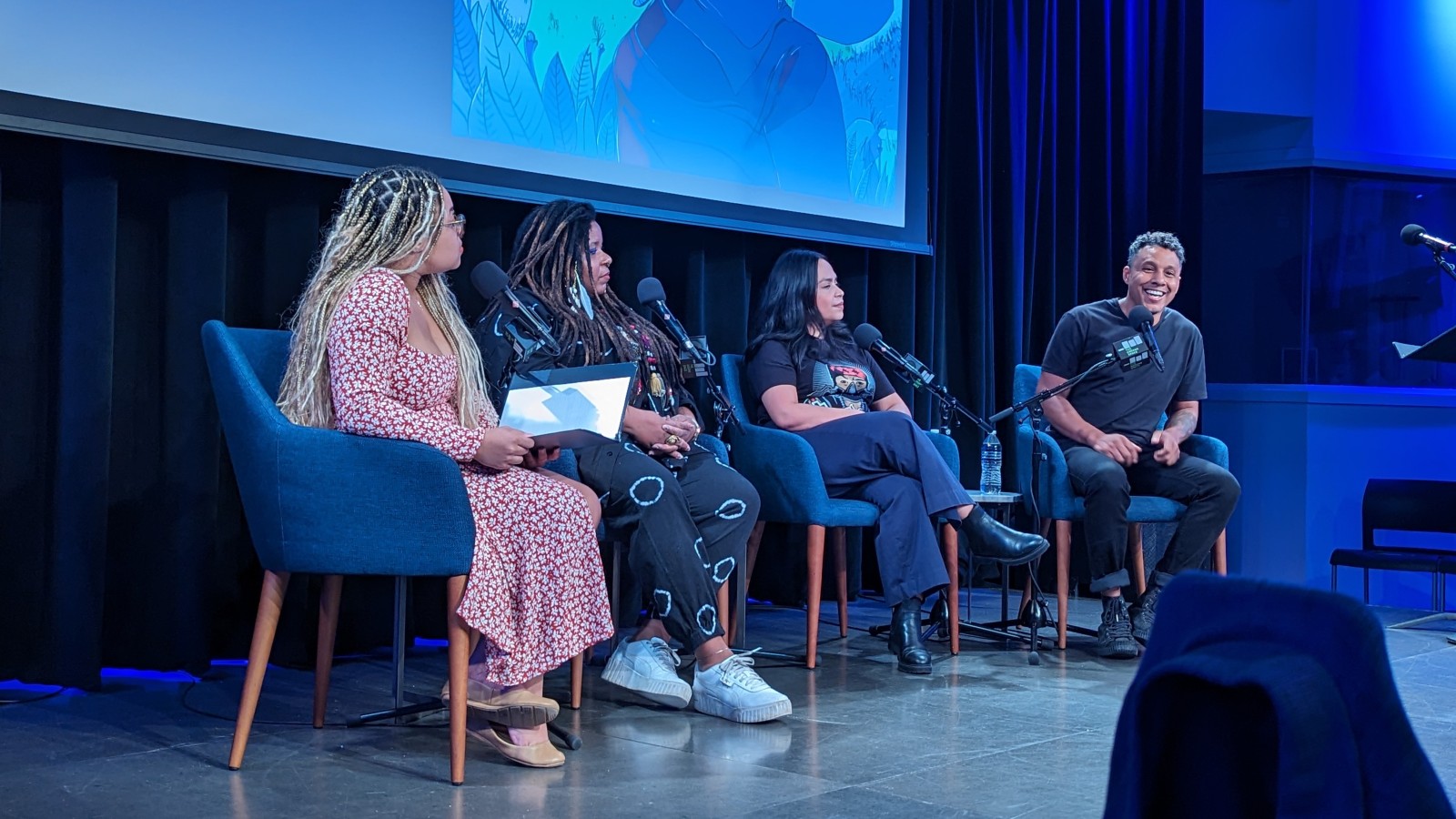On September 18, Grist and Science Friday hosted a discussion of Afterglow: Climate Fiction for Future Ancestors at New York’s Greene Space. The event brought together both organizations’ book clubs: Grist’s Looking Forward newsletter hosts a quarterly book club focused on climate, and Science Friday has a monthly science book club. Afterglow is a climate fiction collection of 12 stories edited and published by Grist.
The event featured New York Times bestselling author Morgan Jerkins (This Will Be My Undoing; Wandering in Strange Lands; and Caul Baby), environmental health professor and researcher Dr. Yoshira Ornelas Van Horne, Grist’s Creative Manager for Climate Fiction Tory Stephens, and artist and social movement strategist Aisha Shillingford. The event also included live readings of the book from OBIE award-winning writer and actor Eric Lockley (playwright, Sweet Chariot, The Public Theatre).
The discussion explored the role that creativity and imagination play in helping society envision and achieve a just, sustainable, and inclusive world for all people. In addition to a sold-out live show, the event was streamed live, and 595 people attended virtually.
The panelists spoke about the importance of imagining a radically different future through the lenses of art and science. Ornelas Van Horne shared how she views environmental justice as a sort of shared vision — in the face of injustices that plague communities on the front lines of climate change and polluting industries today, environmental justice is the dream that the world could be different. “We envision that everybody will have clean air, clean water,” she said.
The panelists explored their experiences with climate-fueled loss and adaptation, themes of migration and collective memory, decolonizing science, as well as climate hope and the importance of imagination. “The thing that I focus on a lot is hope, and for me it was very superficial for a long time,” said Stephens. “And what changed that for me was thinking of hope as a verb and what I can do to help the situation.” Shillingford added: “I think about my ancestors and the hope they had to have for me to be here.”
Shillingford guided the audience in a world-building exercise to imagine a resilient future for places that are meaningful, inviting everyone in the room to spend time envisioning a location they love in the year 2200.
“How do we explore the way we adapted to that reality, and what can that adaptation teach us about what we need to do now?” she asked. “Try to imagine the world that you desire for future generations, whether it’s your own descendants, or people you imagine living where you live, or in a place that you could impact. One hundred or 200 years from now, what world would you want for them to live in?”
Watch the event below.



